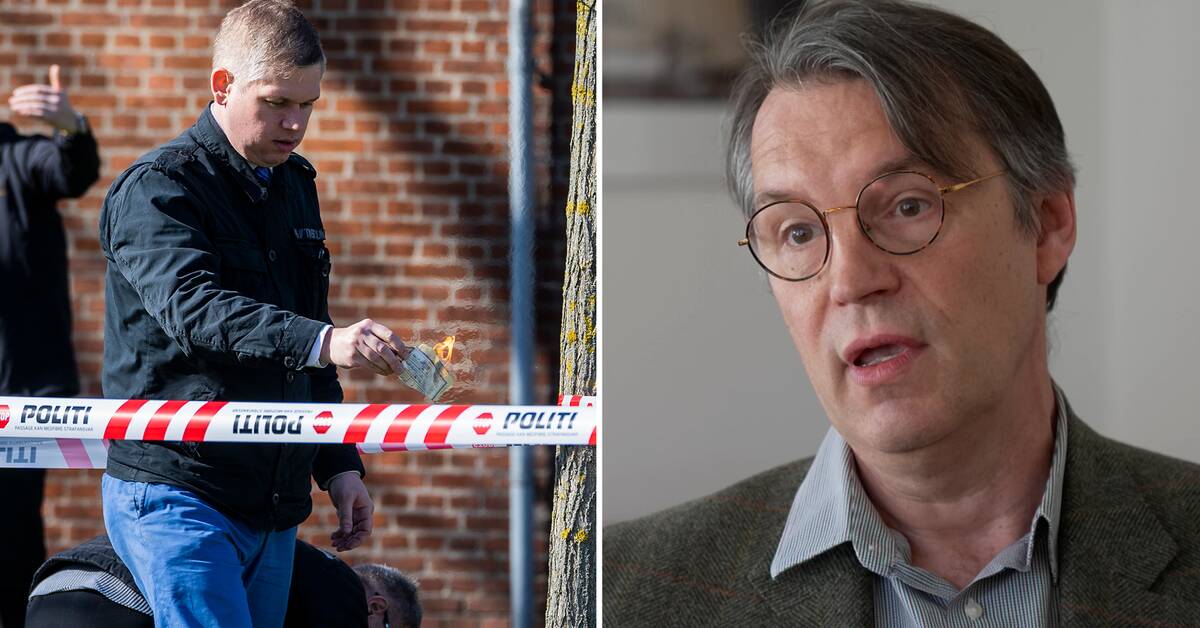For several days, the Swedish-Danish right-wing extremist Rasmus Paludan traveled to several Swedish cities and burned the Koran.
Which were licensed gatherings.
The actions provoked protests that ended in riots, stone-throwing and 26 injured police.
This weekend's riots have led to the discussion that burning the Koran should be considered incitement against an ethnic group, something that has previously been reported but never tried in court.
According to Justice Thomas Bull, it takes more than one individual act for it to fall under the rage against ethnic groups.
- Anyone who burns a Koran can imagine that Islam is not a good religion, just as if you burn Bibles or if you burn flags to show criticism of a country.
It is a common gesture to be critical of something, but it does not have to mean the kind of hateful message that incitement against an ethnic group presupposes, he says and continues:
- It does not have to be aimed at a particular ethnic group and it does not have to mean the hate message but can be criticism.
The peace of faith was removed in favor of freedom of expression
Thomas Bull believes that the reason for the act is decisive for the law, and that just burning a Koran does not have to mean that the person hates Muslims.
- But together with other symbols, it could have been enough for incitement against ethnic groups.
Had he worn a certain type of armband or had placards around him at the same time as he did this, it might have been incitement against a group of people.
Until 1970, Sweden had a law on religious peace, which replaced the previous law on blasphemy.
The law meant that it was a criminal offense to violate something that was considered sacred by word or deed.
It was abolished as a special protection of religious freedom was not considered to justify restrictions on freedom of expression and the press.
- It was removed based on the idea that it must be okay, even if it can provoke others, to do things that involved criticism of, for example, religion, Bull says.
On Wednesday, Malmö police reported Rasmus Paludan for incitement against ethnic groups, with the hope that the case will be tried in court.
- We think it would have been good with another trial, because we understand that this is offensive.
At the same time, we have a strong freedom of expression that needs to be opposed, says Jimmy Arkenheim, local police area manager in Malmö.

